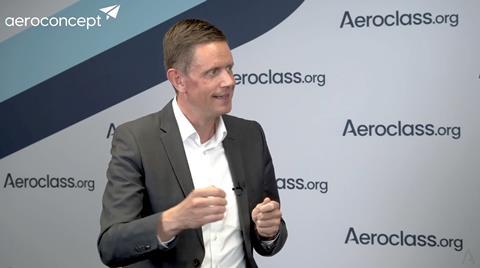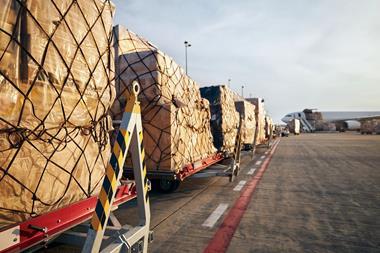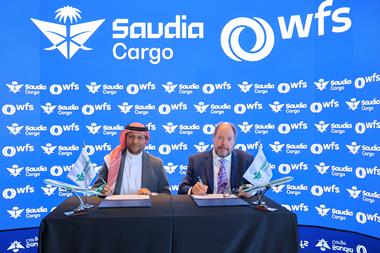
Competition between air cargo ground handlers has ramped up to an “aggressive” level since the start of the Ukraine-Russia war took capacity out of the market.
James Wyatt, general manager of Leipzig, Germany-based aviation consulting business aeroconcept, said this loss of capacity has naturally seen ground handlers lose business.
For example, when AirBridgeCargo stopped operating, the volume of air cargo was cut overnight, he said.
This in turn put pressure on ground handlers to remain operational and sustainable.
He added that because some airlines have been forced to fly longer routes to avoid Russia and Ukraine airspace, ground handlers have also experienced longer waiting times for aircraft arrivals.
“They’ve been as proactive as they can, but are also reactive. What it’s led to at certain locations is ground handlers that have lost business perhaps offering very cheap rates with very aggressive service levels around, for example, import/export handling, latest acceptance times pricing in order to retain operations and perhaps take business from elsewhere.”
“There is aggression in the market with pricing and approaches and trying to break certain silos of contracts,” he said. “But this is nothing new. Air cargo is very resilient.”
Wyatt spoke about the challenges that ground handlers are facing at a recent “How to overcome current air cargo ground handler challenges” workshop hosted by online training courses provider Aeroclass, part of Avia Solutions Group.
Despite a squeeze on capacity leading to increased competition, ground handlers have also faced congestion at some airports worldwide since the pandemic began.
Air Cargo News asked Wyatt how ground handlers are tackling supply chain bottlenecks that are resulting in congestion.
Wyatt explained this is being addressed on a case-by-case basis.
He said ground handlers could work on: “Collaborating and working together with all stakeholders; prioritisation of operations in accordance with customer contracts; better management of airport facilities and infrastructure – for example looking at managing peak aircraft/truck periods; and being collaborative and openly communicating with all parties to find a solution.”
One development since the pandemic started that ground handlers agree has been time and labour intensive is cargo-in the-cabin (CIC) flights.
With the EASA exemption on CIC flights due to end on July 31, Air Cargo News asked whether this policy shift is expected to ease pressure on air cargo ground handlers.
“Yes, we’re not seeing that many passenger flights operating with CIC and I think that will make a ground handler quite happy because it’s quite intensive work,” said Wyatt.
“Cargo loading requires more people and process time. Capacity is at a premium, but CIC has a huge impact on resources and planning.”
Staff attraction and retention is a major challenge for the ground handling sector, and staff shortages have been highlighted at many airports during the pandemic, exacerbated by CIC flights and wider logistics supply chain congestion.
Resource planning in terms of people management and forecasting fluctuations in inbound and outbound air cargo is a huge challenge and may impact employee wellbeing, said Wyatt.
“The challenge that many cargo ground handling organisations face is if they don’t have the right employees who are correctly trained then it puts these staff under pressure.”
He said this pressure shouldn’t be underestimated as the nature of the ground handling business in serving airlines and freight forwarders means ground handlers have to be flexible as they “are the middle party being pulled in all directions”.
Depending on the location of the ground handling operation there may be “difficult circumstances with the airport authority, customs authority, agriculture authority etc… driven by local government regulation.”
“There’s definitely issues with attrition,” said Wyatt. However, competitive pay, operational clarity and regular communication is important to help tackle this.
Wyatt said ground handlers should focus on providing employees with the right training to provide a consistent level of service, looking for a local gap in the market based on what commodities airlines are offering, communicating with airlines, adopting industry standards and being sustainable in terms of both business continuity and green logistics.















